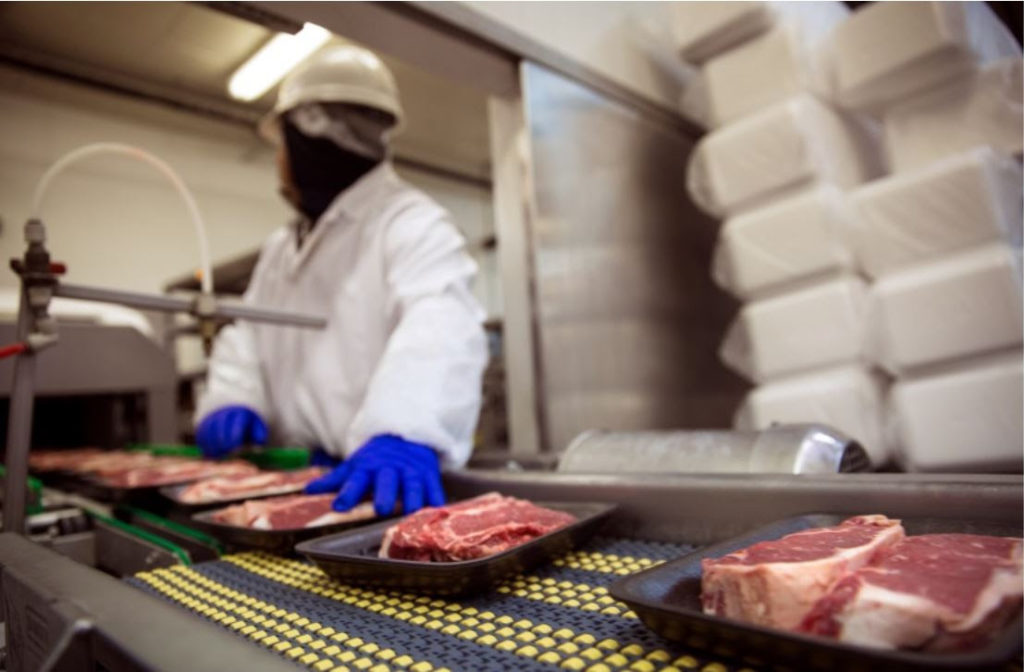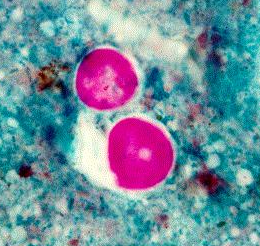China suspended imported poultry from Tyson and poultry plants in the United Kingdom and Germany, after recent COVID-19 outbreaks at or near the plants. As a result of the suspension, the USDA Secretary Sonny Perdue and FDA Commissioner Stephen Hahn issued a joint statement addressing food export restrictions tied to COVID-19, emphasizing that there is no evidence that people can contract the virus from food or food packaging. “Efforts by some countries to restrict global food exports related to COVID-19 transmission are not consistent with the known science of transmission,” the USDA and FDA said Wednesday. “There is no evidence that people can contract COVID-19 from food or food packaging. The U.S. food safety system, overseen by our agencies, is the global leader in ensuring the safety of our food products, including products for export.” Tyson signed certification requested by China, saying that meat shipments are free of the novel coronavirus. The statement from USDA and FDA reiterates previously published guidelines from the CDC stating there is a lack of evidence to suggest handling or consuming food is associated with COVID-19. @ https://www.meatingplace.com/Industry/News/Details/92866
ruth
Meatingplace.com is the online community for North American beef, pork and poultry processors.
ruth
Food Safety Tec reported that China’s General Administration of Customs announced the suspension of imported shipments of poultry from the Tyson Foods plant in Springdale, Arkansas. The Tyson slaughterhouse had a confirmed cluster of coronavirus infections. China also suspended pork products from German pork processor Toennies last week following a COVID-19 outbreak among hundreds of its workers. Tyson reported that 3,748 employees were tested; 481 tested positive (13%). However, 95% of the positive employees were asymptomatic. Officials in China want the inspection process of overseas shipments ramped up, as they suspect that there might be contamination from COVID-19. The World Health Organization, the CDC, the USDA, and the FDA all agree that “there is no evidence to support the transmission of Covid-19 associated with food.” But Chinese health officials are concerned that the virus could be “hidden” on the packaging of imported frozen food products and vowed to strengthen inspections of all shipments from overseas. @ https://foodsafetytech.com/news_article/china-stops-poultry-imports-from-tyson-foods-due-to-covid-19-concerns-clamping-down-on-inspections/
The Packer reported that 829 employees of Dole’s salad processing plant in Springfield, Ohio, were tested for COVID-19 on June 13, of which 235 employees tested positive (28%). According to a statement from Bill Goldfield (director of corporate communications at Dole Food), the company is following the health district’s recommendations to protect further the health of employees, contractors, and community, all Dole employees who tested positive were asked to self-quarantine. The Springfield plant continued operations with all cleared personnel. The county health department hired 14 additional contact tracers and, by June 23, found 281 total confirmed cases related to the outbreak at Dole’s plant. In Clark County by June 22, there were 627 confirmed cases and seven confirmed deaths from COVID-19, according to the county health district. The average age of those with the new coronavirus is 38. @ https://www.thepacker.com/article/236-employees-ohio-dole-plant-are-covid-19-positive
ruth
The FDA reports that on June 22, 2020, ALDI, in association with Fresh Express Inc., recalled ALDI’s 12-ounce Little Salad Bar Brand Garden Salads from stores due to Cyclospora. The recall affects products sold in Arkansas, Illinois, Indiana, Iowa, Michigan, Minnesota, Missouri, North Dakota, South Dakota, and Wisconsin. Earlier, Hy-Vee and Jewel-Osco recalled their 12-ounce bagged and labeled “garden salad” products. Hy-Vee recalled its 12 oz. Hy-Vee Bagged Garden Salad product on June 20, 2020, across its eight-state region. Fresh Express is the manufacturer of these salads. In a press release, Jewel-Osco stated its recall of bagged Signature Farms Garden Salad, sold in its stores in Illinois, Indiana, and Iowa was “in cooperation with the Fresh Express recall of bagged salads potentially linked to an outbreak of Cyclospora infections” in Midwestern states. @ https://www.fda.gov/food/outbreaks-foodborne-illness/outbreak-investigation-cyclospora-bagged-salads-june-2020?utm_campaign=Outbreak_Cyclospora_06232020&utm_medium=email&utm_source=Eloqua
Hy-Vee, Jewel-Osco, and ALDI grocery stores recall their store brand bagged salads specifically labeled as “garden salads” sold in mid-western states.




